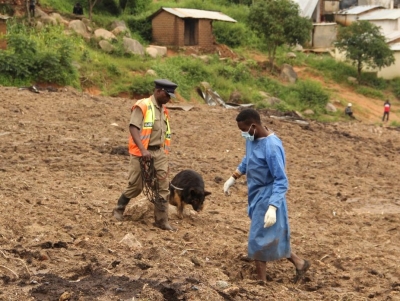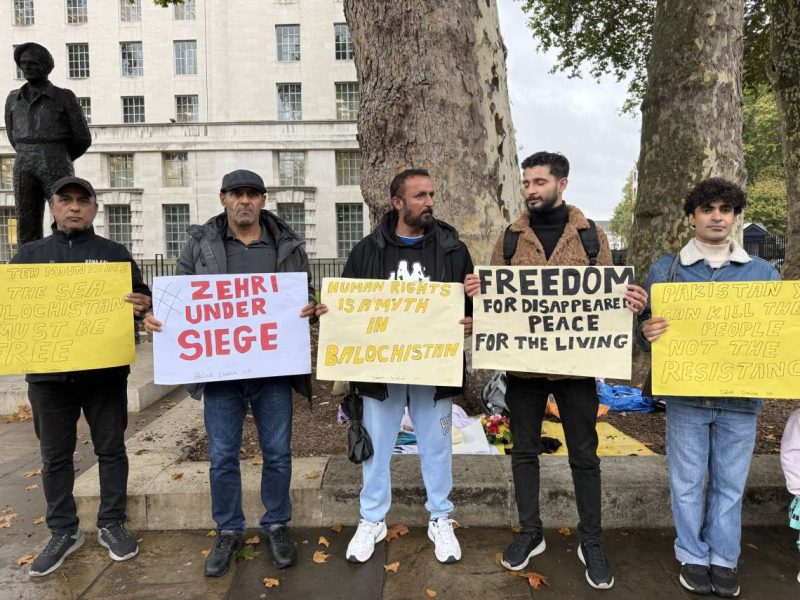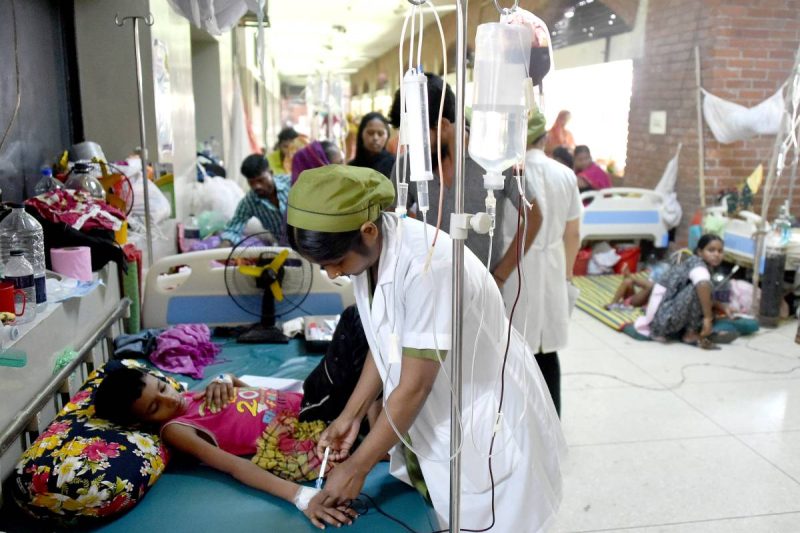The infrastructure in Kalehe is poor, which can make communication and access difficult when such disasters occur. About 150 people were wounded and needed medical attention…reports Asian Lite News
At least 411 people are now known to have died in intense flooding and landslides that hit the Democratic Republic of the Congo’s South Kivu province last week.
Efforts to rescue inhabitants and recover bodies in Kalehe, where the flooding happened, are continuing. Some houses, schools and hospitals have collapsed or become dilapidated or unsafe. Others were entirely swept away.
“There are some places that had houses, but you look at them now and can’t imagine that there was anything there before,” said Ulrich Crepin Namfeibona, the Médecins Sans Frontières (MSF) emergency coordinator in South Kivu.
The torrential rains wiped out entire villages, along with fields of crops and livestock, leaving communities reeling. About 5,500 people are still missing, and thousands of survivors have been left homeless.
Residents of Bushushu and Nyamukubi villages, hardest hit by the disaster, have had to travel long distances on foot to evacuate to neighbouring villages – some as far as a three-hour walk away. Even motorbikes cannot navigate the area’s severely damaged pathways.
“Some of them have relatives in the other villages, but some go there without knowing anyone,” said Namfeibona.
The infrastructure in Kalehe is poor, which can make communication and access difficult when such disasters occur. About 150 people were wounded and needed medical attention.
“My biggest concern is healthcare for the injured patients,” said Namfeibona. “More than 30 needed emergency surgery yesterday and that hospitals around do not have the [technical] capacity for.”
One of the main roads out of Kalehe has been rendered impassable, hampering aid and rescue efforts. Medical teams have had to first take wounded people to a local hospital where they are triaged and wait, often for hours, until they are ferried out of the area by boat via Lake Kivu to a hospital in Bukavu town, which is a nearly three-hour boat ride away.
Many of the dead have been buried in mass graves, prompting pushback from some community leaders and an order by government officials for coffins to be delivered to the area.
Kalehe, a remote rural area in eastern DRC, has a high population of displaced people – many of whom rely on logging and charcoal production for a living. The area has historically attracted higher levels of rainfall due to its proximity to forests, but higher deforestation rates, coupled with slash-and-burn agriculture and the clearing of land for homes, means the mountainous region is particularly vulnerable to landslides during heavy rains.
“The environment is completely ruined. Rains don’t come when we expect, and when they do, it sweeps everything,” said Josué Aruna, the head of an environmental civil society network in South Kivu. Aruna said the land needed massive restoration. “If no mitigation plans are taken, climate change will continue to bring an even bigger disaster than we are seeing now.”
The DRC floods happened days after deadly flooding in Rwanda, on the other side of Lake Kivu, which killed roughly 130 people. Uganda also experienced flooding, which caused 18 deaths and left thousands displaced. Predictions by the World Bank suggest about 86 million Africans will migrate within their own countries by 2050 as a result of the climate crisis.
ALSO READ-Climate change and floods dampen tourism in Swat Valley









